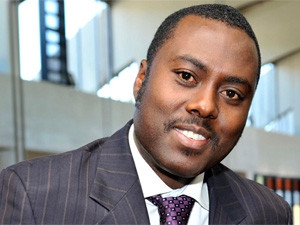
The response to government's newly launched Ubuntu Radio has been "overwhelming, positive and encouraging from all over the world".
This is according to Department of International Relations and Co-operation (Dirco) spokesperson Clayson Monyela.
In October, Dirco launched an online, 24-hour talk station as a platform for foreign policy discussion and education. The department has emphasised that the station is not a propaganda tool, but rather a platform to engage, communicate with and educate South Africans on the country's foreign policy and explain SA's rationale behind the positions adopted on major global issues.
"We had, in fact, underestimated the level of interest in this venture," says Monyela. "We have people e-mailing, calling and responding via social networks from all regions of the world. Everyone calls it an innovative project, whose time is now. It gives us a platform to have an ongoing conversation with everyone who is interested in SA's foreign policy and involvement in global affairs," he says.
Monyela explains that establishing and running the radio station has been "surprisingly cheap", especially since Dirco already had a fully functional broadcasting studio available that was previously not utilised. "Minor upgrades were done to install audio streaming capabilities [at a cost of] R101 230. Radio equipment does not require monthly maintenance per se, but we do have a facilities management section within Dirco to attend to such," he says.
"The department uses 'salaried' or paid employees of the department to anchor shows. We do have a number of external volunteers and regular contributors to the station," he says. He did not give an exact figure of the monthly running cost of the station, but says funds are obtained from the Branch: Public Diplomacy, which has a mandate to communicate, explain and popularise SA's foreign policy globally.
Democratic Alliance shadow minister of international relations and co-operation Ian Davidson says Ubuntu Radio could be effective if it is not a one-way stream of information from government, but rather a centre for discussion and engagement. "By and large, there is very little coverage of foreign policy in the media and people do not know much about SA's foreign policy or SA's stance and approach to trouble spots in the world. So if Ubuntu Radio becomes a platform for lively debate on these issues, it can fulfil a purpose," he says.
However, he suspects the radio station will have a very small audience that is critical of government's policy or general foreign affairs. "I have been assured that the costs involved with this station are minimal, but I still ask if it's really cost-effective. Because, quite frankly, I think it is likely to have a very limited listenership."
Share